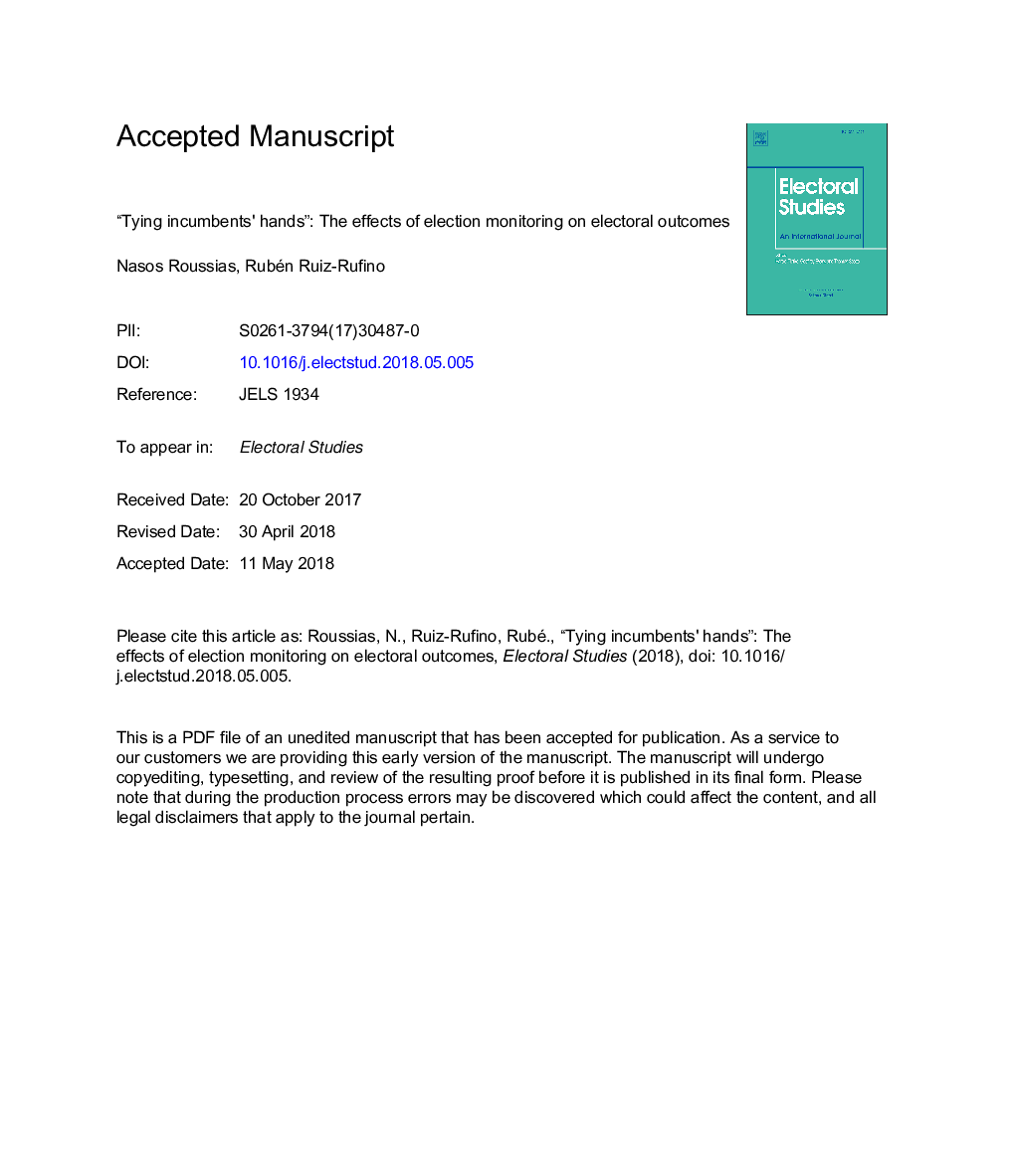| Article ID | Journal | Published Year | Pages | File Type |
|---|---|---|---|---|
| 7463194 | Electoral Studies | 2018 | 40 Pages |
Abstract
Electoral observation missions (EOM) are designed to promote improvements in democratic quality by overseeing elections, but how successful are they? We argue that EOM tie the hands of incumbents, who have to adjust their electoral misconduct strategies, thus opening up political competition and making it more likely that the opposition will do well. Moreover, we propose that monitoring effects are conditioned by regime type, expecting that EOM presence has a stronger impact on electoral competition in autocracies than in democracies. Using a dataset of 580 parliamentary and presidential elections in 108 countries between 1976 and 2009 we find support for our theoretical claims. EOM increase electoral competitiveness in dictatorships by reducing margins of victory for incumbents, but leave competition unaffected in democracies. Furthermore, our analysis indicates that, contrary to previous findings, EOM increase the probability of electoral turnover in dictatorships but have no effect on democracies.
Related Topics
Social Sciences and Humanities
Social Sciences
Geography, Planning and Development
Authors
Nasos Roussias, Rubén Ruiz-Rufino,
